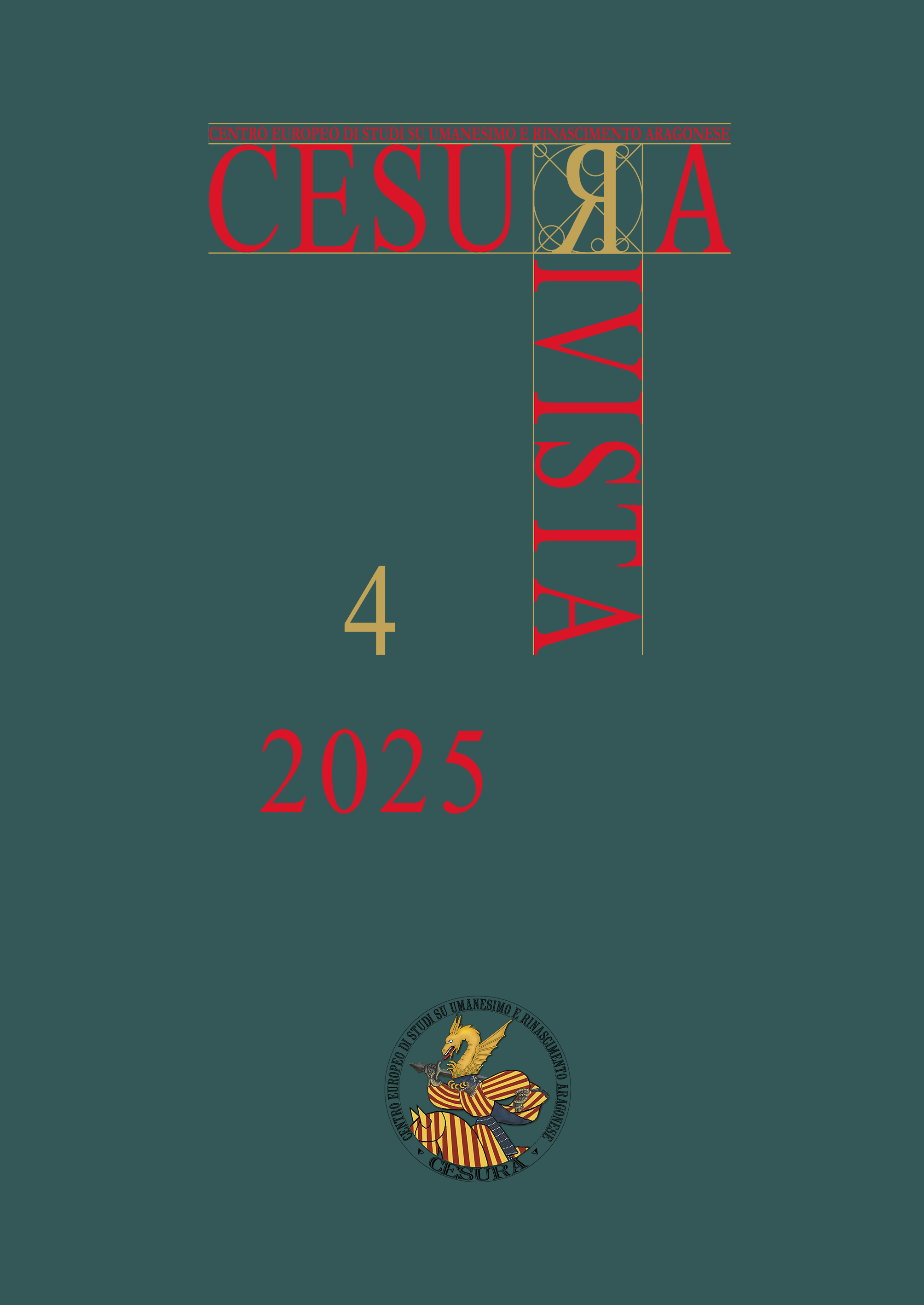At the Crossroads of the Mediterranean. 2. Cultural lines
Contribution to the definition of the concept of Humanism and the Mediterranean Renaissance
DOI:
https://doi.org/10.6093/2974-637X/4111540Keywords:
Mediterranean Renaissance, Mediterranean HumanismAbstract
Opening reflection of the monographic section At the Crossroads of the Mediterranean, devoted to the concepts of Humanism and the Mediterranean Renaissance. The authors trace some lines that may be common to the cultural evolution of the nascent nations bordering the Mediterranean in the 15th century, which found a point of reference in the rediscovery of classicism.
Downloads
Published
2025-01-15
How to Cite
Cappelli, G., & Delle Donne, F. (2025). At the Crossroads of the Mediterranean. 2. Cultural lines: Contribution to the definition of the concept of Humanism and the Mediterranean Renaissance. CESURA - Rivista, 4(1), 3–6. https://doi.org/10.6093/2974-637X/4111540
Issue
Section
Discussions (Monographic section)
Categories
License
Copyright (c) 2025 Cesura Journal

This work is licensed under a Creative Commons Attribution-NonCommercial-NoDerivatives 4.0 International License.
The terms of the license can be found here.




